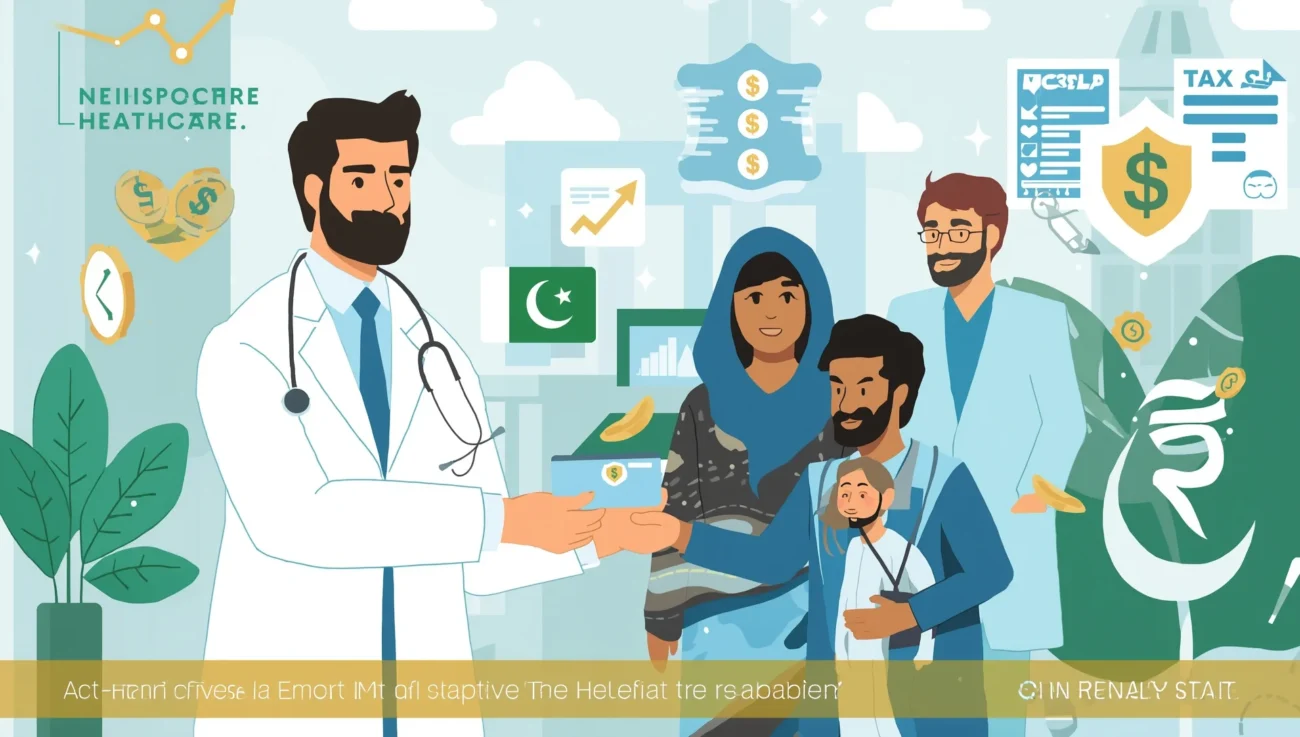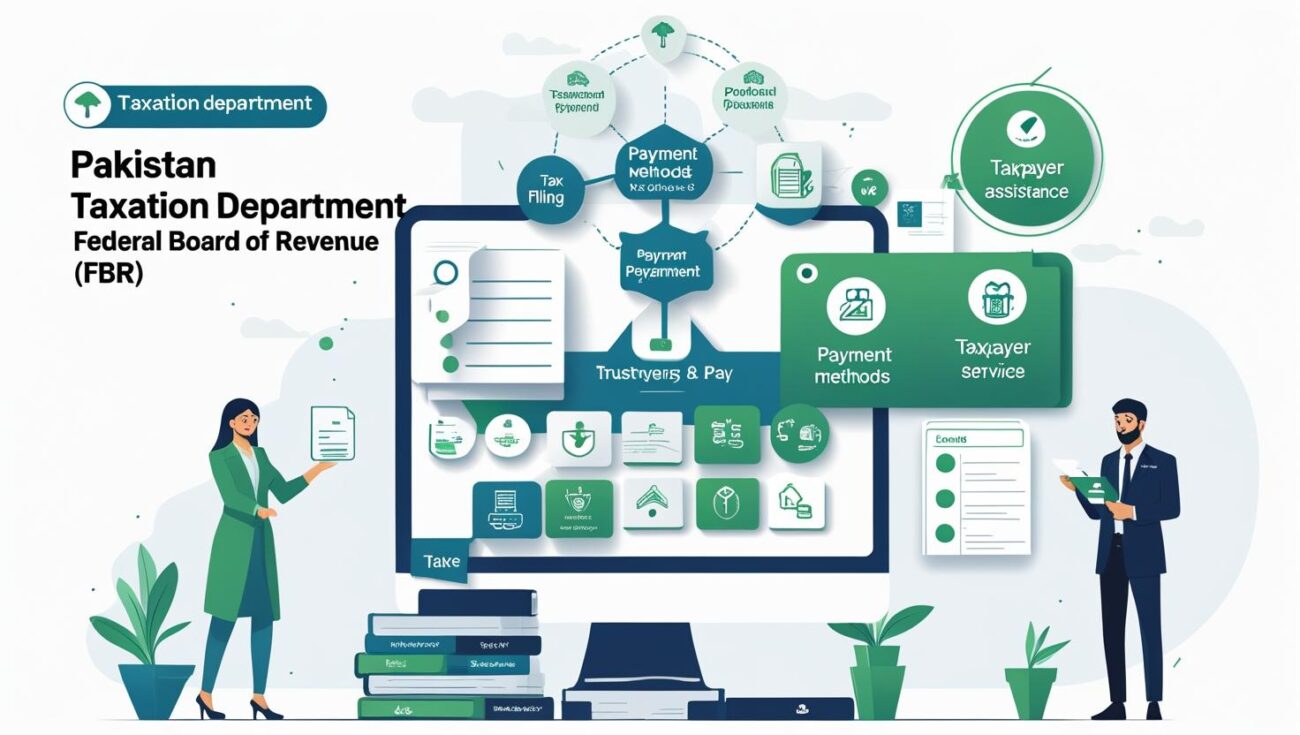In Pakistan, where the healthcare infrastructure is nascent and relies primarily on out-of-pocket payments, the notion of health insurance tax benefit is viewed as an encouraging development towards socio-economic and healthcare safety. Between the economic burden of healthcare, sparse coverage of insurance, and a significant informal employment sector, there is an urgent need for the government to motivate health insurance and provide tax benefits. Grasping the health insurance tax benefit landscape is vital for policy makers, but also for individuals and businesses who aim to mitigate financial obligation while enabling access to healthcare services.
What Is the Tax Benefit?
This is the financial advantage that the government offers in the form of tax deductions or exemptions to individuals or corporations who put in funds towards health insurance plans. Although in Pakistan this is a largely untapped benefit, the recognition of health insurance as a necessity is growing. With the steady realization of health insurance as an essential expenditure, the benefits that come from tax deductions help to lower the burden of expected insurance premiums and support in achieving financial stability in the long run.
Although Pakistan’s tax framework does not revolve around a national health insurance system, the Federal Board of Revenue (FBR) has taken steps towards policy change by permitting deduction claims under certain categories related to health spending, including health insurance. Eventually, the health insurance tax benefit could become an essential element of fiscal policy related to health spending.
Individual Benefits
The health insurance tax benefit affects salaried employees and self-employed taxpayers in a positive way. The deduction alleviation which health insurance tax benefit provides makes the system more equitable specially to salaried employees and self-employed taxpayers. Economists and health policy advocates in Pakistan have cited the need to increase tax deductions on insurance premiums, insurance is more accessible than ever.
Apart from tax exemption, an additional advantage health insurance provides is protection from catastrophic health expenditures, which drives families to bankruptcy. When coupled with health insurance tax benefit, taxpayers benefit from preventative financial planning and tax savings, enabling health coverage.

Business Benefits
In Pakistan, employers are adopting group health insurance policies as part of the employee benefits package. Businesses are beginning to realize the advantages of investing in employee health programs. These expenditures are deductible under corporate tax rules, lowering the company’s taxable income. While in Western nations this incentive is fully exploited, Pakistan is starting to formulate tax policies designed to encourage employers to enhance their employee health benefits.
The direct outcome of the tax benefit is multifold from a reduction in operational expenditures and a rise in employee engagement to improved productivity. There is a reduction in absenteeism and a shift towards proactive health management. Also, these benefits can encourage formal employment in informal sectors, fostering formal structures and resilience in the economy.
National Impact
When health insurance coverage with tax benefits is available, the public has access to necessary care, and the government has tax savings in the long run. More insured individuals translates to lower financial strain on public hospitals. There are fewer people fully subsidized care, so the government can concentrate on enhancing the quality of services provided and improving infrastructure.
Implementing a single policy for all citizens to benefit from tax deductions for health insurance could potentially increase the tax base. Citizens are more likely to participate in formal insurance schemes and, insurance premiums declared serve to formalize additional economic activities, thereby ushering more economic activities into the formal sector. This is not only an evidence of greater accountability and an improved economic environment, it expands the tax base and opens avenues for revenue generation without imposing new tax burdens.
Moreover, citizens in good health are more productive. The government has a vested interest in subsidized health insurance because it ensures constant attendance of insured individuals, and it is in the government’s interest because it promotes frequent examinations, early detection of conditions, prompt treatments, cheaper long-term healthcare expenditures, improved productivity and greater productivity.
Key Challenges
The tax benefit for health insurance in Pakistan appears to be advantageous, however, it remains underutilized and underdeveloped. This is primarily due to the absence of comprehensive legislation addressing health insurance deductions. The country’s tax code is mainly concerned with income and indirect taxes, paying little to no attention to incentivizing healthcare through fiscal policies.
A further contributing factor is the limited public awareness. Health insurance benefits are not widely publicized, especially among small and medium enterprises and their owners, and therefore, the potential for tax relief goes unutilized. Even when tax benefits are available, lack of proper guidance and cumbersome steps disincentivizes participation. To fully capitalize on the health insurance tax benefit, Pakistan requires comprehensive policy frameworks that are not only affordable and accessible, but also actively promoted.

Policy Suggestions
The health insurance tax benefit can only be achieved through a set of policy reforms. The most policy friendly of all is the defined spending policy. This is most actionable through set deductibles and would therefore be regarded as a confidential social strategy. To accommodate individuals, families, and employers as well, tax laws should be updated to expressly consider health insurance premiums as deductible costs. The Federal Board of Revenue can also lead these initiatives through issuing circulars and establishing declarations through dedicated online portals. These tax deduction portals can be made tax insurance deductible related.
Second, regulating health insurance companies to provide standardized offerings eligible for tax deductions would Benefit Consumers and Mitigate System Abuse. Registered and approved providers would be part of the tax-benefit framework, increasing compliance and trust.
Lastly, the adoption of health insurance can be facilitated through public-private partnerships. A subsidized health insurance scheme for lower-income groups, alongside a tax benefit for higher-income earners, allows for an inclusive structure that caters to the entire population.
Long-Term Vision
The proposed integration of the health insurance tax benefit into the broader fiscal and social strategy could enhance economic equity for Pakistan. Health shocks remain a leading cause of poverty within the country. A fair tax structure could support families by rewarding citizens for planning through insurance, thus buffering families against inequitable shocks.
As health concerns increasingly intersect with employment, taxes, and savings, the system cultivates a culture of long-term foresight. This may alter the perception of healthcare in the future—not as a luxury for the wealthy, but as a primary right funded by the government and supported through policies such as the health insurance tax benefit.
Conclusion
In Pakistan, there is a meaningful opportunity to associate fiscal policy with health policy owing to the the introduction and expansion of the health insurance tax benefit. While the policy is still maturing, there is no doubt about its possible benefits. Whether individual financial stability and enhanced healthcare benefits, or sustainable healthcare economics for the nation, this approach could advance a more equitable and efficient healthcare system.
Pakistan must now focus on health insurance as a focal point in its tax policy framework. Under its tangible objectives of more defined policies, enhanced public and institutional engagement, and healthcare control, the health insurance tax benefit could seamlessly integrate to strengthen the nation’s health, socio-economic resilience and financial stability.


